On Wednesday, November 19th, students at SCSU got the opportunity to learn more about plants of all types at the Plant Clinic, held by the Botanical Society of St. Cloud State University. The event took place in the Biological Greenhouse, which is located in Wick Science Building, near Shoemaker Hall.
Although not a packed event, the greenhouse was bustling with life, both plant and human as the Botanical Society performed their maintenance on the abundance of vegetation in the building. Some plants were local, others were tropical. Some were content with sunlight, others needed meat to survive.
Each module in the greenhouse bustled with different varieties of plant life; some for sale, some for enthusiasts, and even more just for fun! Some of the more popular houseplants, such as aloes and spider plants, were extremely common to find. Many of these plants will be sold during the plant sale that comes in the springtime here on SCSU campus. Another module contained a large number of carnivorous plants, which were being meticulously cared for by Botanical Society President, Kendall Cross.
“You see over here, we have purple pitcher plants, which are native to Minnesota!” Cross told the chronicle. “They [carnivorous plants] evolved due to low nitrogen in their environments.” Carnivorous plants come in nearly infinite shapes and sizes, specializing in consuming different organisms, usually insects and other small invertebrates. “They’re not picky, they’ll eat anything that falls into their traps.” Cross said.
(Below: A collection of a variety of carnivorous plants)
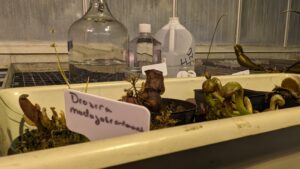

(Above: Purple Pitcher Plants, a carnivorous plant that is native to Minnesota bogs.)
In addition to the maintenance for the carnivorous plants, lots of spider-plants and aloe vera plants were in the process of undergoing pest control and repotting. The aloe plants in particular are often under attack by sap-sucking insect known as scales. This can cause the plants serious damage, so they are often rinsed and washed away from the plants with dish soap and neem oil, a type of oil that is derived from a tree. This breaks down the exoskeletons of the insects, causing them to quickly die and spare the plants.
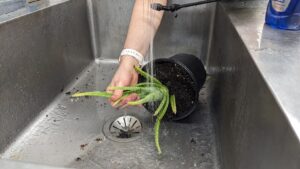
(Above: Dr. Angela McDonnell, assistant biology professor here at SCSU, treats an aloe vera plant being washed and rinse to prevent and treat pests.)
No less than four modules housed a vast series of ecosystems, plants growing in every inch of the spaces. Succulents, flowering plants, vines, all growing under warm grow lights throughout the greenhouse.
(Below: A variety of succulents growing)
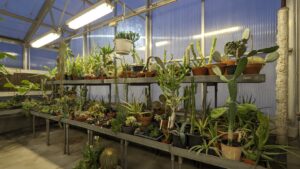
Although fairly niche, the Plant Clinic proved to be a fun, free, and friendly event here on campus. Students who attended had the joy of learning anything they wanted about the plants abundant in the greenhouse. The Botanical Society of SCSU will also be holding the DIY Tea & Pomanders event coming up on Dec 3rd. I’m sure they’d love to see you there!

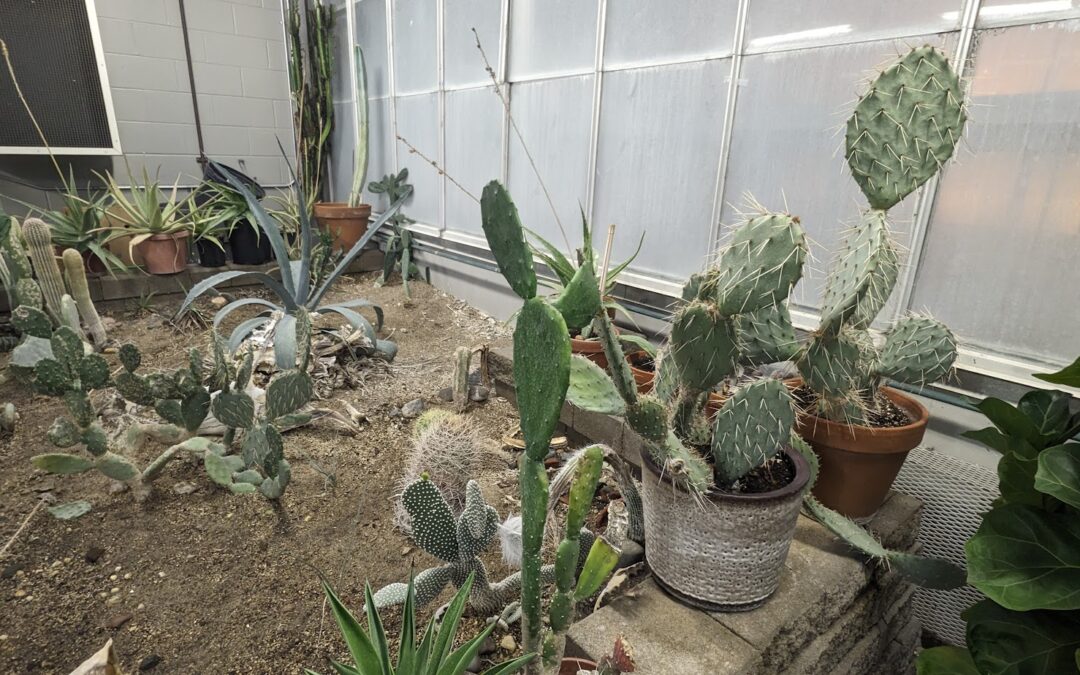
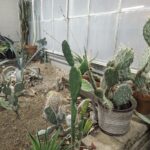


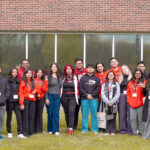
Recent Comments